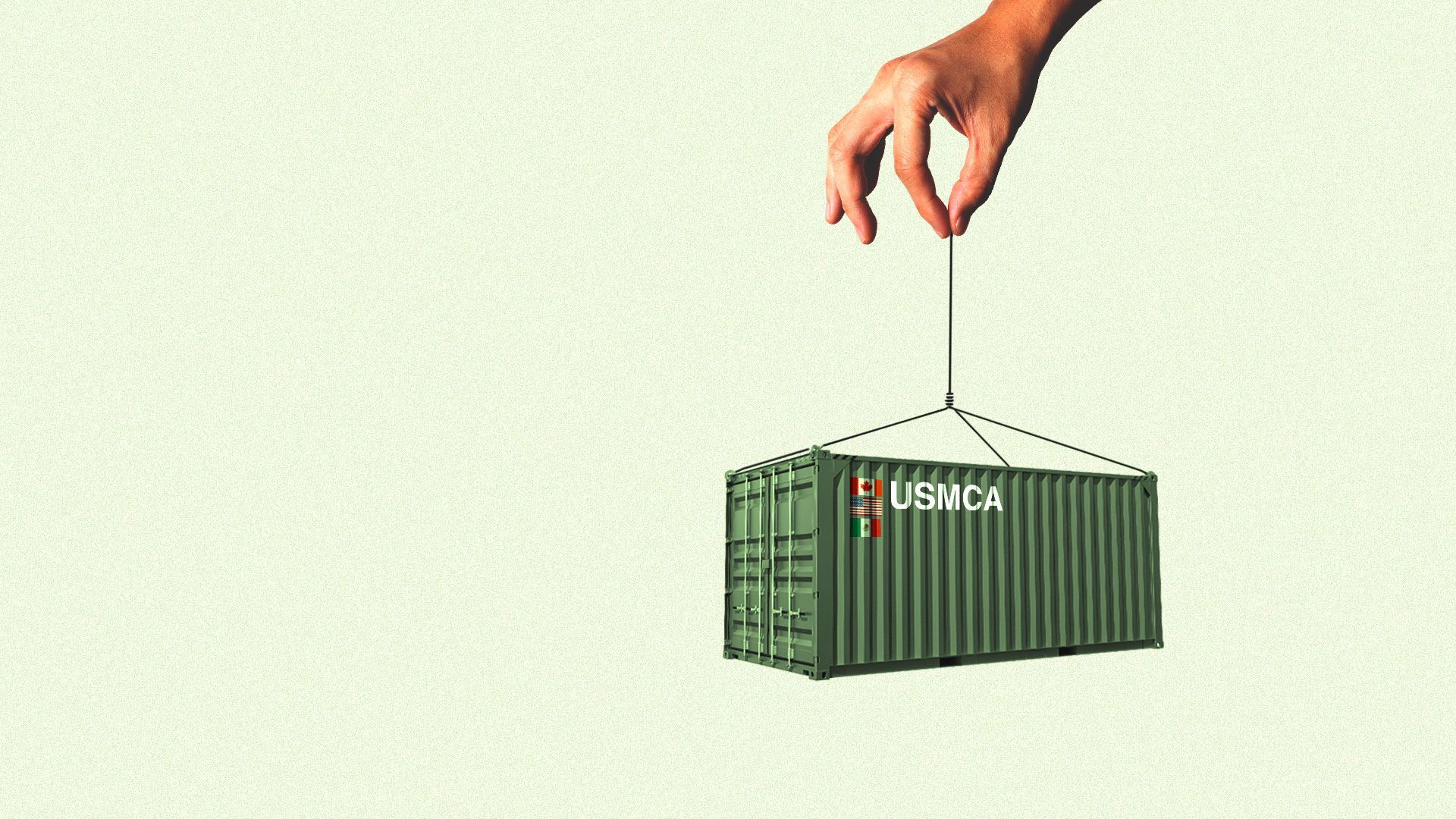
President Trump's two most important trade deals — one with China and another with Canada and Mexico — have been hobbled by forces largely outside of the administration's control.
Between the lines ... 1. On USMCA: The passage of USMCA depends on the ability of House Speaker Nancy Pelosi, organized labor and the Mexican government to come to a compromise.
- The Mexicans have long said there's no way they're going to let American officials inspect their factories. American labor leaders, meanwhile, have said the only thing they'll accept is a unilateral process to ensure Mexico is meeting its labor standards.
- The question is whether there's a side letter that can satisfy both AFL-CIO president Richard Trumka and Mexico City. So far it hasn't been the case but the Mexicans claim they're close.
- Pelosi has to balance the desires of moderate members, who want the deal to pass, against the concerns of more progressive members close to organized labor. And she's doing it all against the backdrop of impeachment, which has overwhelmed the 2019 congressional calendar.
2. On the China deal: A week ago, U.S. sources close to the China talks indicated they were on the precipice of a "Phase One" deal. But that optimism now seems premature, if not misplaced.
- Congress sent legislation to Trump's desk that angered Beijing, interrupted the trade talks, and telegraphed support for democracy and human rights in Hong Kong. The new Hong Kong Human Rights and Democracy Act requires the president to impose sanctions on people who violate human rights in Hong Kong.
- Trump begrudgingly signed off, as the legislation passed with veto-proof majorities.
- Beijing responded with predictable fury and threats, even as Trump took pains to downplay the bill and to flatter President Xi in his signing statement.
Behind the scenes: A source close to Trump's negotiating team told me the China deal was now "stalled because of Hong Kong legislation" and that time is needed "to allow Xi's domestic politics to calm." The "Phase One" deal with China would probably happen "year-end at the earliest," and Trump is expected to hold off on his planned December tariffs to keep the deal alive.
- Two other sources close to the China talks said several substantive obstacles remain, including how much of his tariffs Trump will roll back, what mechanisms will enforce the agreement, and how the Chinese will guarantee enormous purchases of U.S. agriculture products that Trump has already said they will make.
- There are also logistical complications. The Trump team has bandied around possible locations to sign the deal — ideas have included Iowa and Camp David — but has struggled to find a mutually acceptable venue.
The bottom line: Most of my sources close to both trade negotiations — both Democrats and Republicans — say they expect both deals to ultimately come through. But there are plenty of reasons to remain wary about these predictions.
"how" - Google News
December 02, 2019 at 06:08AM
https://ift.tt/2r2Yd4Q
How to think about Trump's two big trade deals - Axios
"how" - Google News
https://ift.tt/2MfXd3I
Bagikan Berita Ini














0 Response to "How to think about Trump's two big trade deals - Axios"
Post a Comment